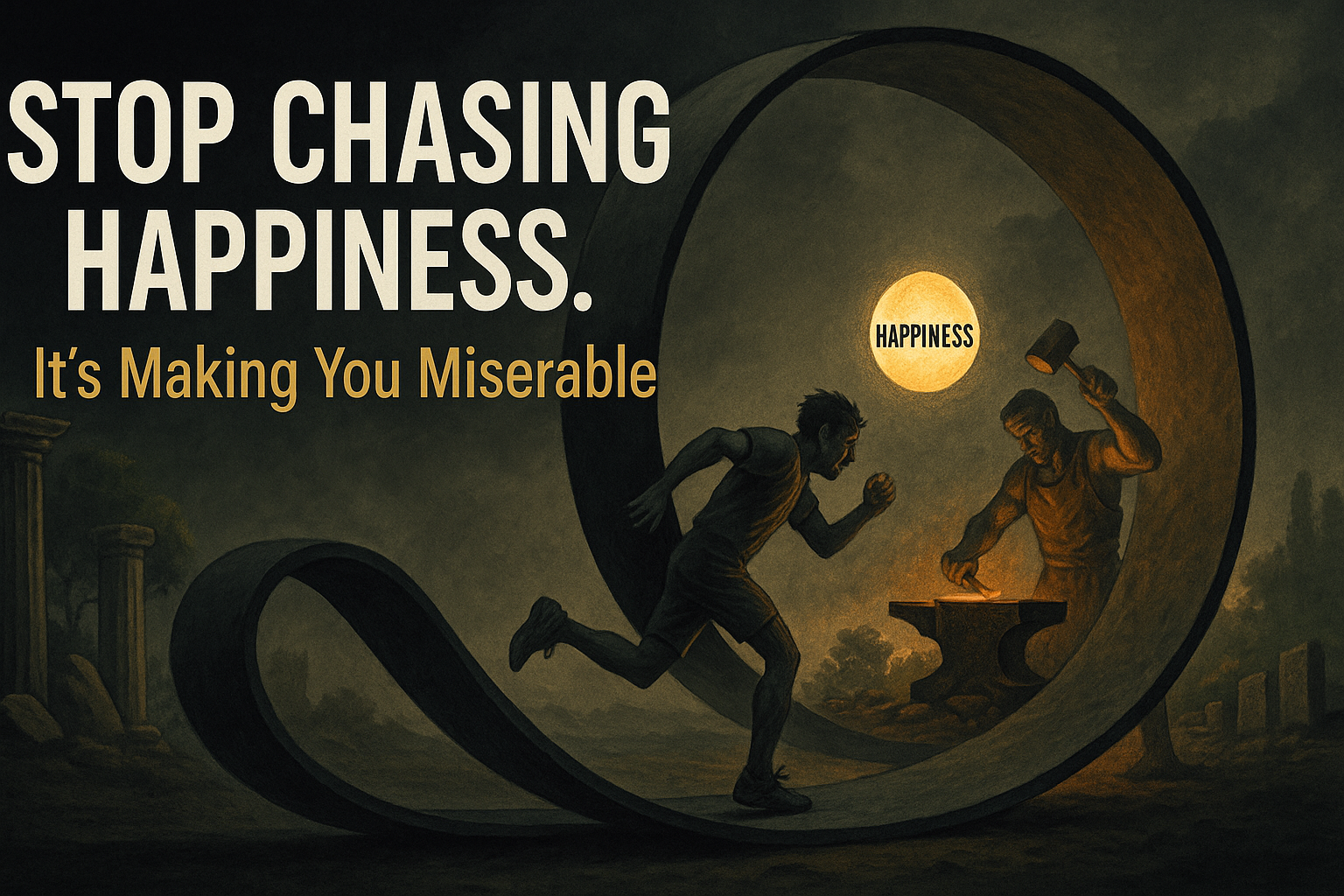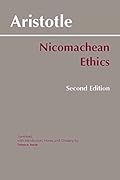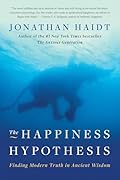
Stop Chasing Happiness. It's Making You Miserable.
By Derek Neighbors on November 9, 2025
Watch people who’ve achieved everything they thought would make them happy. The promotion. The relationship. The financial milestone. The recognition. All the boxes checked.
Then watch their faces when they admit, usually after a few drinks, that they feel hollow.
This isn’t rare. It’s the default outcome of how we’ve been taught to live. The entire modern project is built on a lie: that happiness is something you chase, catch, and keep. Optimize your life for it. Make every decision based on whether it will make you happy. Track your emotional state like a performance metric.
The people who do this most successfully, who achieve everything on their list, often end up the most miserable.
Here’s the philosophical truth: the more directly you pursue happiness, the more it evades you. Something fundamental about the direct pursuit itself guarantees you’ll never catch what you’re chasing.
This isn’t a problem unique to the successful. It’s not about privilege or circumstances. It’s the fundamental human condition. Whether you’re struggling to survive or living in abundance, the principle remains the same: happiness cannot be caught by direct pursuit.
Slave or emperor. Broke or wealthy. Beginning your career or at the peak of it. The circumstances differ wildly. The philosophical truth doesn’t change.
Every rational being faces the same reality about how happiness actually works. And most of us are getting it catastrophically wrong.
The Happiness Trap
But first, we need to be precise about what we mean by happiness. The ancient Greeks distinguished two concepts that we’ve collapsed into one word:
Hedonic happiness - feeling good, pleasure, positive emotional states
eudaimonia - flourishing, living well, actualizing your potential through virtue
Modern culture treats all happiness as hedonic. Feel good. Avoid discomfort. Optimize for pleasure. This confusion is catastrophic because these two paths lead to opposite destinations.
The hedonic path (chasing feeling good) leads to emptiness. The eudaimonic path (building virtue) leads to fulfillment. We’ve been optimizing for the wrong target.
Modern culture has made hedonic happiness into an obligation. We optimize every life decision around one question: will this make me happy?
Career choices. Relationships. Daily schedules. Where you live. How you spend your time. Everything filtered through whether it produces the feeling you’re chasing.
And then the constant evaluation: Am I happy yet? Should I be happier than this? What’s wrong with me that I’m not happier?
This creates an exhausting cycle of self-monitoring. Happiness becomes a performance metric rather than an experience. You’re not living, you’re auditing how you feel about living.
Here’s what actually happens when you make happiness the target:
The hedonic treadmill kicks in. Each achievement raises the bar. The promotion that should have satisfied you just makes you want the next one. The milestone that should have brought peace just reveals the next gap. You’re running faster to stay in the same emotional place.
Joy becomes obligation. When happiness is the goal, experiencing it becomes work. You should be happy about this opportunity. You should feel grateful for these circumstances. The pressure to be happy kills the possibility of being happy.
You miss what’s actually happening. While you’re constantly checking whether you’re happy yet, you’re not present for the moments that could create genuine connection or meaning. The evaluation destroys the experience.
The evidence is everywhere. People obsessed with being happy report lower life satisfaction. Cultures focused on individual happiness show higher rates of depression. The positive psychology movement created new forms of inadequacy, now you’re failing at optimizing your emotional state.
High performers with every external marker of success, wealth, status, achievement, recognition, often describe feeling hollow. They optimized for happiness and ended up with emptiness.
But what about people who seem genuinely happy pursuing pleasure? Look closer. That satisfaction is fragile, dependent on circumstances staying favorable. The moment external conditions shift, the house of cards collapses. Hedonic happiness is borrowed fulfillment, and the bill always comes due. It’s pleasure, not flourishing. Feeling good temporarily, not living well enduringly.
Those who chase pleasure end up empty or fragile. Those who optimize for hedonic happiness find misery or anxiety about losing what they have. The direct path to what you want guarantees you’ll never get there sustainably.
What Kant Knew (That We Forgot)
Immanuel Kant figured this out centuries ago: Happiness cannot be pursued directly. It only arrives as a byproduct of living virtuously.
You don’t aim for happiness. You aim for virtue, courage, wisdom, justice, integrity, and happiness shows up uninvited as evidence you’re living aligned with your character.
This matters because happiness is an outcome, not an input. You can’t manufacture it through pursuit. You can’t optimize your way into it. It emerges from character alignment, not circumstance manipulation.
The people who actually seem fulfilled aren’t the ones who made happiness their goal. They’re absorbed in meaningful work. Building something that demands their full capacity. Facing challenges that require them to become more than they currently are.
The ancient Stoics understood this completely. Marcus Aurelius, Seneca, Epictetus, none of them pursued happiness. They pursued arete (excellence in character), and eudaimonia (human flourishing) emerged as the natural result.
Their focus was always on what they controlled: their character, their choices, their virtue. Happiness was a signal that they were living aligned, not a goal to optimize for.
Modern research confirms this ancient wisdom. Csikszentmihalyi’s flow research shows that happiness comes when you’re absorbed in meaningful challenge, not when you’re pursuing the feeling of happiness. Studies by Carol Ryff and colleagues on eudaimonic well-being demonstrate that people pursuing meaning and personal growth report higher life satisfaction than those pursuing hedonic happiness directly. Research on the “paradox of happiness” consistently finds that directly pursuing happiness as a goal predicts lower well-being.
The counterintuitive finding that keeps showing up across multiple studies: difficulty processed well creates more lasting satisfaction than pleasure pursued directly. The hedonic path leads to emptiness. The eudaimonic path, the one focused on character and meaning, leads to fulfillment.
The shift required is fundamental. Stop asking “will this make me happy?” Start asking “will this make me better?”
But why virtue specifically? Why is character development obligatory rather than optional?
Because you have rational capacity. That capacity is what makes you human rather than merely animal. You can reason, reflect, choose based on principles rather than just instinct or impulse.
To have that rational capacity and not develop it through virtue is to fail at being human. Not because it’s nice to be virtuous. Not because virtue makes you feel good. Because actualizing your rational nature through excellence is what rational beings owe by virtue of being rational.
A tree that doesn’t grow toward light fails at being a tree. A human who doesn’t develop virtue through reason fails at being human. This isn’t inspirational. It’s definitional.
The happiness you couldn’t catch when chasing it shows up when you’re focused on something else entirely: becoming worthy of experiencing it.
The Right Pain vs. The Wrong Pain
The ancient Greeks had a word for this: eudaimonia. Not happiness but flourishing. Not feeling good but being good. Not comfort but character. The kind of fulfillment that comes from becoming worthy of your potential.
But here’s what most people miss: the path to eudaimonia runs through difficulty. Not around it. Not despite it. Through it.
Not all pain is equal. There’s pain that builds and pain that breaks. Pain of discipline versus pain of regret. Struggle that forges character versus suffering that fragments it.
Here’s the principle that distinguishes them:
Pain aligned with virtue development builds you. Pain from avoiding virtue fragments you.
The right pain moves you toward virtue. It develops courage when you face what scares you. It builds wisdom when you process hardship into insight. It creates justice when you choose what’s right over what’s easy. It forms temperance when you delay gratification for something that matters more. This pain serves your actualization.
The wrong pain comes from avoiding what you know you should do. It’s the suffering of knowing you’re living below your capacity. The regret of choosing comfort over character. The slow death of potential unrealized. This pain serves your fragmentation.
You can tell the difference by what it’s aligned with and what it leaves behind. Right pain aligns with developing virtue and leaves you with increased capacity. Wrong pain aligns with avoiding virtue and leaves you with decreased capacity and more fragmentation.
Most people pursue outcomes while avoiding the difficulty that builds character. Chase external markers while bypassing internal development. Optimize for achievement without character growth. Look for feeling good about what they’ve built rather than becoming good through the building.
What actually creates fulfillment isn’t pursuing pleasure. It’s pursuing excellence. Not chasing comfort, but building character. Not optimizing for feeling good, but becoming good. Not avoiding pain, but finding the pain that forges you.
Every time you choose comfort over challenge when character is on the line, you’re choosing the slow erosion of your capacity to experience meaning. You’re guaranteeing the emptiness that comes from achieving everything and feeling nothing.
What Actually Works
If you can’t chase happiness directly, what do you do?
Stop the happiness audit. Quit asking yourself “am I happy?” multiple times per day. Stop treating happiness as a performance metric to optimize. Release the pressure to be happy all the time. Let happiness be a byproduct of how you’re living, not a target you’re hitting.
The constant evaluation kills the experience. Every time you stop to check whether you’re fulfilled yet, you pull yourself out of the very engagement that could create fulfillment.
Start the virtue check instead. Ask different questions. Did I act with integrity today? This week, am I building character or avoiding difficulty? This month, am I becoming worthy of my potential or managing around the growth that potential demands?
These questions measure what you actually control. Your character. Your choices. Your response to difficulty. Whether you’re forging yourself through meaningful struggle or fragmenting yourself through meaningless comfort.
Choose difficulty that builds. Take on challenges even when they’re uncomfortable, especially when they’re uncomfortable. Process hardship rather than bypass it with positive thinking. Engage in struggle that develops capacity. Build character through sustained effort toward excellence.
This doesn’t mean seeking suffering for its own sake. It means recognizing that the obstacles you face are the forge where character gets built. The difficulty you process becomes wisdom. The challenge you rise to meet becomes capability.
Work becomes meaningful when you stop managing around difficulty and start letting it forge you. Projects become fulfilling when you stop executing familiar patterns and start growing through problems you don’t yet know how to solve.
Measure by growth, not by feeling. Track character development, not mood. Evaluate decisions by virtue alignment, not pleasure potential. Assess progress by who you’re becoming, not how you’re feeling.
This is the long game of character over the short-term roller coaster of emotional state. Mood fluctuates. Circumstances change. External validation comes and goes.
But character compounds. Capacity builds. Virtue integrates. The person you’re becoming through sustained engagement with meaningful difficulty is the only thing that lasts.
One more practical diagnostic: When facing difficulty, ask “Is this building my capacity for virtue or am I avoiding what I should face?” Not all suffering is virtue-building. But all virtue-building involves processing difficulty rather than avoiding it. The question helps you distinguish character development from rationalized suffering.
Final Thoughts
You will never catch happiness by chasing it. Every attempt to optimize for feeling good guarantees you’ll end up feeling empty. The direct pursuit of pleasure creates the very misery you’re trying to escape.
This is philosophical fact, not personal opinion. Rational beings pursuing hedonic happiness while avoiding virtue development end up hollow. The evidence is everywhere. The research confirms it. The ancient wisdom established it.
The shift happens when you stop asking whether you’re happy and start asking whether you’re growing. Stop optimizing for feeling good and start focusing on becoming good. Stop avoiding difficulty and start processing it into character.
Happiness shows up. Not because you chased it. Not because you optimized for it. But because you became someone capable of experiencing it. The byproduct of a life engaged with meaningful challenge, not the target of a life optimized for comfort.
The ancient Greeks called it eudaimonia, flourishing. The Stoics called it living in accordance with nature. Kant called it the good will. They’re all pointing at the same truth.
Aim for virtue, and happiness finds you. Aim for happiness, and you’ll spend your life running from the misery of the chase.
Stop chasing happiness. Start building character. Pursue excellence. Choose meaningful difficulty. Process hardship into wisdom. Live virtuously not because it feels good but because it’s right.
The feeling follows. Not as the goal. As proof you’re doing the work that matters.
This is the work we do at MasteryLab, building character through meaningful challenge, not chasing comfort through avoidance. If you’re ready to stop pursuing happiness and start building a life worth living, join us.




